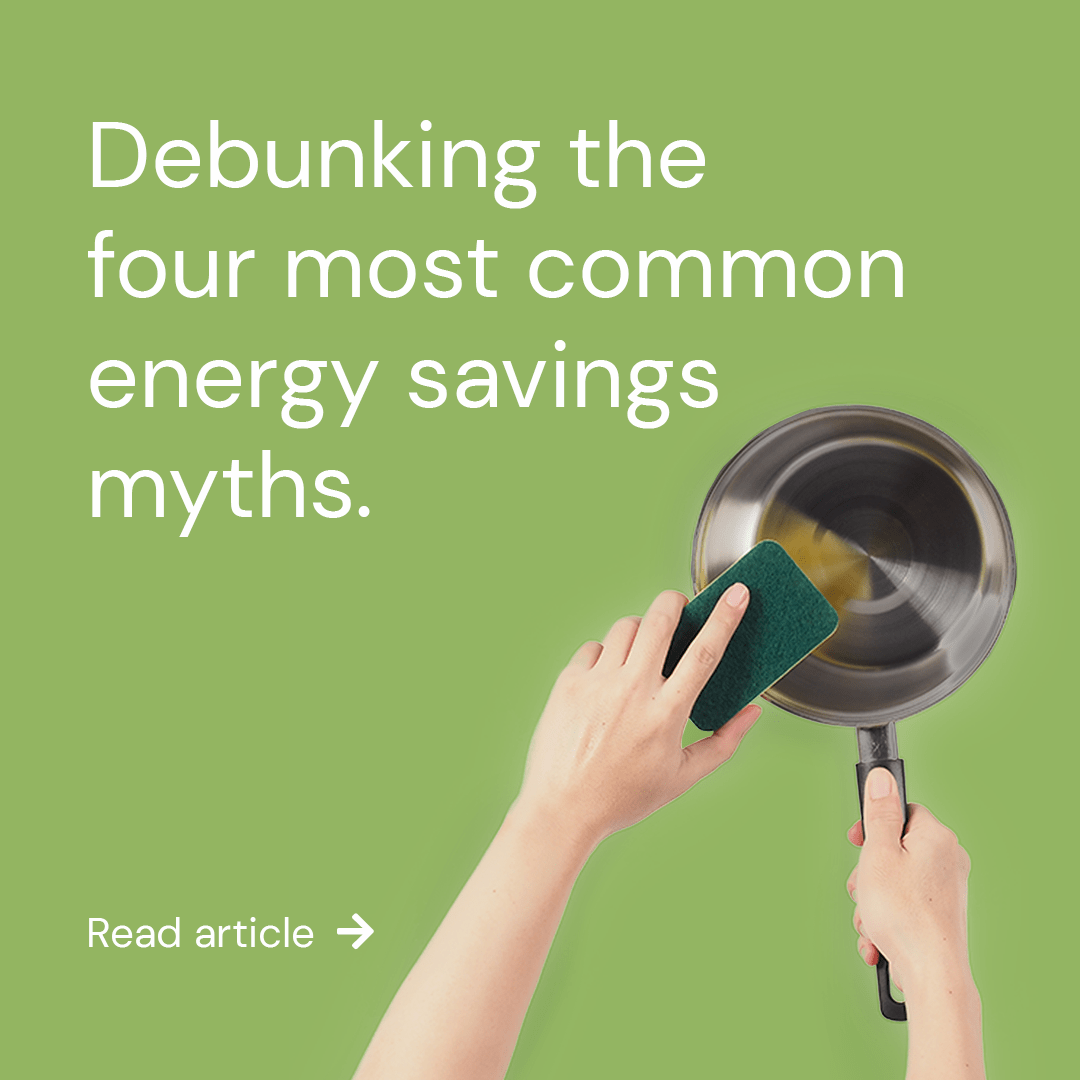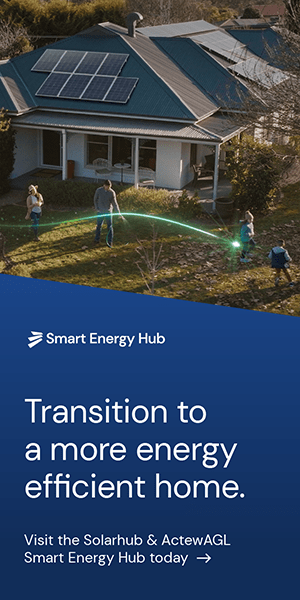ENERGY SAVINGS
The four most
common energy
savings myths
debunked.
As most eco-conscious consumers know, saving energy is good for both the environment and the wallet, however with a wealth of sustainability info out there, it can be hard to separate fact from fiction.
To help you make informed decisions about improving your home’s energy efficiency, let’s debunk some of the most common energy savings myths and misconceptions.
MYTH 1: Leaving energy appliances on standby doesn’t waste energy
Appliances on standby mode can sneakily drain more energy than you would think. Believe it or not, standby power can account for as much as 10% of energy used in a typical Canberra home according to Actsmart. That’s a significant figure given that the devices themselves are not actually being used.
How can you switch off to save? Make it easy to power down each night by plugging all your appliances into the same power board so they can be turned off with one switch. Be mindful of leaving mobile phones plugged into chargers when they’ve reach capacity and use timer switches for heaters and air con units, so they’ll shut down at desired times.
MYTH 2: Closing air vents in unused rooms will save energy
Common sense may suggest that closing air vents in unused rooms will lead to energy savings by redirecting airflow to other areas of the house. However, this is a common misconception that can actually lead to an increased energy consumption.
Why so?
Closing air vents can increase the pressure within the duct work, leading to higher duct leakage. This means that conditioned air (which you are paying to heat or cool) may escape through gaps and leaks in the duct system. The result? An overwhelmed air-conditioning system that will have to work harder to compensate for the lost air.
That’s not all. Heating and cooling systems are designed to distribute airflow evenly throughout the house. By closing vents in specific rooms, you risk disrupting this balance, thus unsettling the system.
MYTH 3: Hand washing dishes will conserve more energy and water
It’s easy to assume that when you wash dishes manually by hand, you’re more in control and can use less hot water, compared to a dishwasher that runs on a long cycle. In fact, the opposite is true.
A University of Bonn study revealed that a full, standard dishwasher uses around 13 litres of water to clean 144 items. Yet washing the same load by hand uses an incredible 100 litres of water on average–that’s over seven times more! When shopping around for a new dishwasher, pick one with the highest number of stars on the Energy Rating Label. This will guarantee maximum energy efficiency.
To save even further with your dishwasher, Energy Rating recommends running a full load at around 50°C during off-peak times before air-drying the dishes.
MYTH 4: Solar panels will only work in summer
With an average of 7.7 hours of sunlight every day, Canberra is one of Australia’s sunniest capital cities, making it perfect for home solar use. While it’s true that solar panels do perform at their highest efficiency under direct sunlight, they can still generate electricity throughout the year, including during cloudy or winter months.
Solar panels are designed to perform in various climates and locations. They’ll be installed at an angle that maximises sun light exposure, taking into account the specific latitude and solar irradiance of the area. Furthermore, solar panels are tested and rated for performance in different weather conditions, including cold and snowy climates. In fact, solar panels can even benefit from cooler temperatures, as excessive heat can reduce their efficiency.
At the height of summer, when the glorious sunshine is at its peak, a solar battery storage solution will help you store up that precious energy for cloudier days.
Summary
- Standby power can account for up as much as 10% of energy used in a typical Canberra home. Be sure to turn off all devices, appliances and chargers off fully at night.
- Closing air vents can increase the pressure within the duct work, leading to higher duct leakage, causing your air con system to become unbalanced and work harder.
- Hand washing dishes can use around seven times more hot water than using a dishwasher. Run a full load at around 50°C during off-peak times before air-drying the dishes.
- Solar panels can still generate electricity on cloudier days and a battery storage system can conserve it even further.
ActewAGL's energy saving tips are designed to help you take control of your energy use, while reducing your bills and environmental impact. Save with great value energy plans backed by our sustainability promise, supported by 100% local, award-winning service - so you can LIVE A Good Life now and into the future.
For more information about how you can transition to an energy-efficient home visit the SolarHub & ActewAGL Smart Energy Hub today.
Sources
https://www.climatechoices.act.gov.au/
https://www.choice.com.au/home-and-living/kitchen/dishwashers/articles/dishwasher-vs-washing-by-hand
https://www.energyrating.gov.au/consumer-information/tips/save-energy/tips-using-your-dishwasher-efficiently
https://canberra.com.au/live/moving-to-canberra/weather-and-climate/
Disclaimer: These Energy Savings tips and articles are for information purposes only. Please ensure you are aware of any safety precautions before operating appliances or products.



